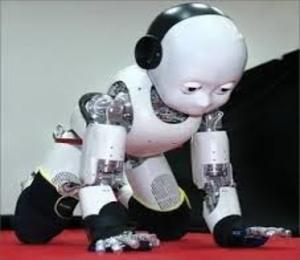Robots are coming to be omnipresent in human social life, which requires them to be able to behave appropriately in the context of interaction and to have an accepted appearance for a human user. The problematic requirements of robot behavior and appearance for creating a successful long term human-robot relationship constitute major challenges in current cognitive science and robotics research. The complementary relationship between cognitive science and robotics defines the aspects of cognitive robotics research, which focuses on endowing robots with advanced cognitive abilities in order to perceive, reason, and behave autonomously in a similar intelligent manner to humans.
Robots are gradually filling the gap separating theoretical research and real world applications. The use of robots side by side with cognitive science allows for modeling the hypotheses and theories of cognition so as to provide a clear conceptualization for cognitive functions considering the effect of the environment. This opens the door to several social cognitive applications that require intelligent embodied robot behaviors, such as: modeling human learning and adaptation cognitive functions, defining the involved mechanisms in language and action development, understanding and generating multimodal affective behaviors, understanding a broad spectrum of cognitive developmental disorders (e.g., autism), and elderly assisted living, in addition to public interactive applications (e.g., receptionist robot, museum tour-guide robot, and tutor robot).
This workshop aims at shedding light on the intersection of human cognitive science, artificial intelligence, and robotics research from the theoretical and technical aspects covering basic research, in addition to industrial and commercial applications. Recent advances and future research scope of cognitive robotics including new methodologies, applied technologies, and robots are principal topics of discussion during the workshop.
_________________________________________________
** More than 60 participants are registered at our annual workshop in its first version – 2015.
** CSR Journal Special Issue: The authors of selected papers will be invited to submit extended versions of their research studies in a special issue of Elsevier Journal of Cognitive Systems Research (CSR). The criteria of selection are based on clarity and originality of the submitted papers, in addition to thoroughness of results. More details will be available soon.







